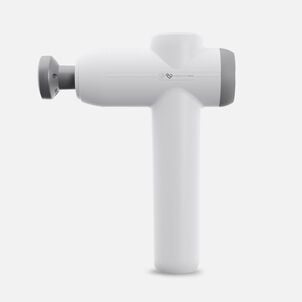Enrolling in an HDHP? Here's what to do next (Part 1)

Say you're offered your dream job. It includes all the perks: a signing bonus, relocation assistance, and a hefty raise. The only thing that's throwing you off? The health insurance plan offered is a high deductible health plan (HDHP). And you've never had one before.
While HDHPs can sound scary, it doesn't have to be a deal breaker. In fact, it could actually save you money in the long run. Many younger consumers are even opting for HDHPs to save money on health care.
We'll explain next steps to take once you enroll in a HDHP, from opening an HSA to budgeting for expenses, to even learning how to negotiate with medical professionals. Follow these tips and you'll be well on your way to both physical – and financial – health.
Become a savvier health care consumer
These days, consumers are looking to get the most bang for their health care buck, and are shopping around for the plan that best fits their needs.
Don't be left out of this trend. Become a better health care consumer by taking advantage of tax-free accounts like HSAs. Of course, while an HSA is a great way to offset the cost of an HDHP, not all plans are eligible for one, so be sure to do your research.
Shop around for health care. Do your research on providers, out-of-pocket costs, copays, and other related costs. These can cost you big if you haven't met your deductible yet, so you'll want to be smart with your spending. You may choose to visit a cheaper provider, then use those extra funds to pad your savings, invest the money, or even splurge on a health-centric getaway.
Negotiate your medical bills. Do your research on what specific procedures or specialist visits should cost, then call your provider and offer something in that range. Many providers are more than willing to negotiate.
Worth noting: Ask before you pay, since getting any funds recouped will likely be tougher than simply paying less up front. It also pays (pun intended) to know how to effectively communicate with health care professionals. (In other words, be nice!)
Buy generic. From monthly medications to OTC purchases, buying generic can save you a ton of cash. And when you're footing the bill of a higher-than-normal deductible, you may not notice the difference between brand name and generic, other than the name on the box.
Get a primary care doctor. While this may seem counter-intuitive from the advice we gave above, having a primary care doc you know and trust is invaluable in saving money on health care. Primary care physicians are almost always cheaper than trips to urgent care centers or emergency rooms.
Open an HSA
Opening an HSA is one of the smartest things you can do when enrolled in an HDHP. Not only does the tax-free account help offset the cost of health care when enrolled in a HDHP, the funds also roll over year to year and can be used, penalty-free, for non-medical expenses after age 65.
Deciding how much to contribute to your HSA can be tricky. Plan to contribute enough to cover your out-of-pocket expenses for the year. That way, you'll be prepared in case you get hit with a major medical event. If you have cheaper health care costs that year? No worries. Your money carries over year to year. You can even take your HSA with you when you change jobs.
Don't forget to make an annual budget for your HSA so you don't overspend and end up short at the end of the year. It's also a smart move to determine an HSA beneficiary.
(Next, we'll discuss other HDHP management strategies, from keeping an eye on your deductible to the low down on add on benefits to planning for big life events.)
--
Whether you're spending steadily or saving for something, Wage Up! is where we highlight the latest services available to buy with your HSA, every Monday on the HSA Learning Center. And for everything else about your health and financial wellness, be sure to follow us on Facebook and Twitter.


.png)
















